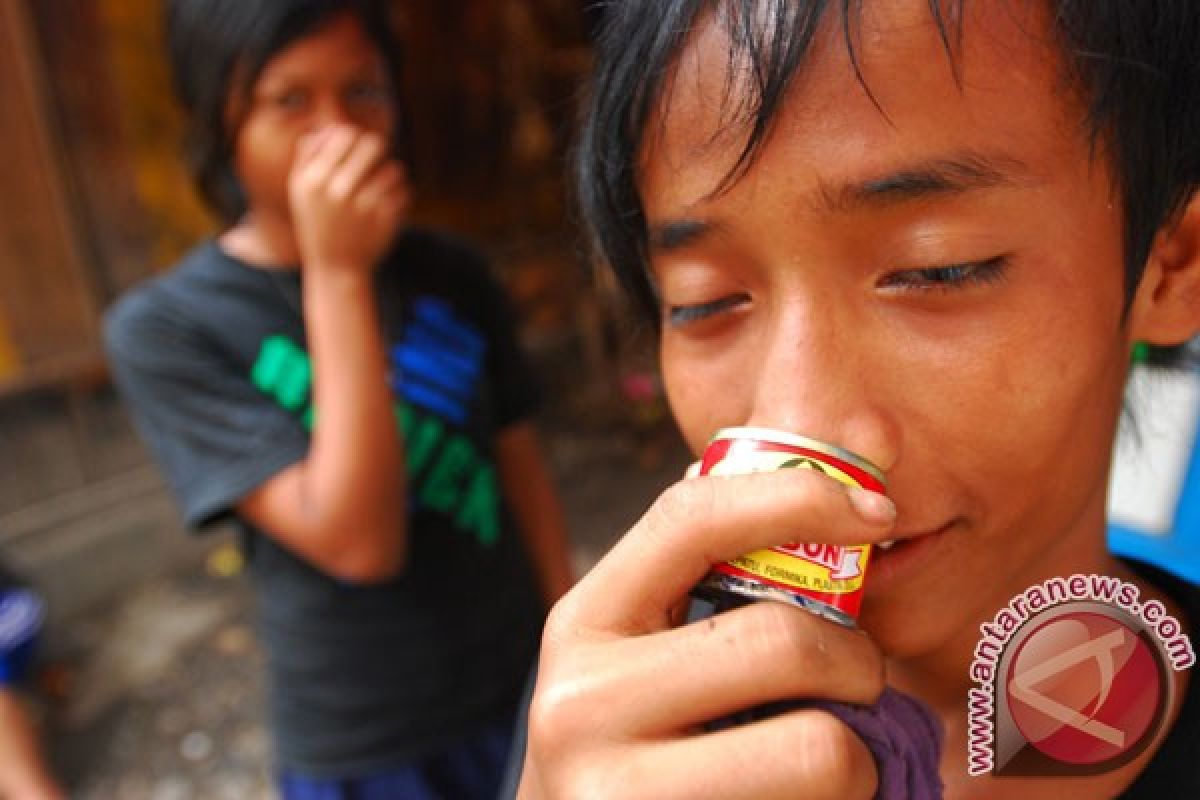It was revealed on Tuesday that the glue sniffed by the underaged children contained traces of Lysergic Acid Diethylamide, popularly known as LSD.
Dr Tanti Melani, a member of the Surabaya health team, stated that the substance can cause hallucination among its users.
"Moments after these kids inhale the glue, they will feel sensations of being `high`," she noted in Surabaya, Tuesday.
She believed that this is due to the presence of LSD in the glue that was inhaled. It can also alter one`s thoughts, moods, and demeanors.
LSD is a considerably new substance that bears hallucinogenic effects and usually takes the form of small pieces of paper and is closely associated with the term psychedelic.
Melani pointed out that continued use of LSD can lead to problems in organs, including the brain and lungs.
"One can also get addicted to it," she added.
Potent Substance
The Australian Alcohol and Drug Foundation has listed LSD as a highly potent substance, so much so that the doses usually come in small sizes.
"The most common form of LSD, is drops of LSD solution dried onto gelatin sheets, pieces of blotting paper or sugar cubes, which release the drug when they are swallowed," the ADF website stated, as cited in Jakarta, Tuesday.
Consumption of LSD can result in heightened euphoria and excitement. However, one of its most common effects is visual hallucinations and illusions.
Negative experiences are also common upon consumption of LSD, including panic attacks, paranoia, and irrational fears, among other negative effects.
These negative experiences can also lead to risky behavior that can trigger acts of self-infliction.
Environmentally Induced Phenomenon
Mayor of Surabaya Tri Rismaharini had earlier noted that such problem among teenagers often occurs due to several factors, including influence of their environment, friend groups, and problems in the family.
She further explained that based on the examination by a psychological therapist, all five kids had problems with their families, in which case, family problems need to be resolved at the same time to help the children.
"We will assist them in resolving problems with their families. We have also spoken to their schools, so they can be admitted back in," she stated.
She noted that two of the five children had dropped out of school and will then be taken under the care of the Surabaya City Government for further handling in order to prevent them from repeating similar actions in future and to convince them to go back to school.
"I will later offer them to live in the Surabaya government`s Children Village. These kids still have talents, and we will see what we can do with them," she remarked.
The mayor further explained that the problems occurring among such children are due to outside influences. They usually occur in children who drop out of school, which means they do not have a set of daily activities, leaving them room to be affected by negative influences.
"These children have no activity, and they influence other children. This is one of the most concerning impacts of dropping out of school," she pointed out.
Meanwhile, drug consumption, especially among children, continues to be the enemy of Indonesia.
The National Narcotics Agency revealed that 5.9 million Indonesian children were addicted to drugs, 24 percent of which are still students of elementary, middle, and high schools.
In cases of drug abuse among children, it is believed that the family`s role is important, as it is the first and closest party to monitor and protect children from the dangers of drugs.
The family has a role to save the future of 87 million Indonesian children and the nation`s future from the threat of drugs.
Deputy for Child Protection of the Ministry of Women`s Empowerment and Child Protection Sri Danti Anwar had earlier stated that Indonesia was facing a problem of drug emergency that must be addressed together.
"This is our homework together. All elements of the nation must join hands to overcome it. This cannot be handled alone," she emphasized.
She noted that drug abuse had a negative impact on various sectors, especially economic, health, and social, in addition to the young generations, including women and children.
Reporting by Abdul Hakim
Editing by Sri Haryati
Reporter: Aria Cindyara
Editor: Andi Abdussalam
Copyright © ANTARA 2018












